NAVYPEDIA
 Support the project with paypal
Support the project with paypal
Photo

Porpoise 1966
Ships
| Name | No | Yard No | Builder | Laid down | Launched | Comp | Fate |
|---|---|---|---|---|---|---|---|
| Porpoise | S01 | Vickers-Armstrong, Barrow | 15.6.1956 | 25.4.1956 | 16.4.1958 | for disposal 1983, sunk as target 1985 | |
| Rorqual | S02 | Vickers-Armstrong, Barrow | 15.1.1955 | 5.12.1956 | 24.10.1958 | BU 5.1977 | |
| Narwhal | S03 | Vickers-Armstrong, Barrow | 15.3.1956 | 25.10.1957 | 4.5.1959 | scuttled 3.8.1983 | |
| Grampus | S04 | Cammell Laird, Birkenhead | 16.4.1955 | 30.5.1957 | 19.12.1958 | harbour TS 1976 | |
| Finwhale | S05 | Cammell Laird, Birkenhead | 18.9.1956 | 21.7.1959 | 19.8.1960 | harbour TS 1979 | |
| Cachalot | S06 | Scotts, Greenock | 1.8.1955 | 11.12.1957 | 1.9.1959 | sold 11.1979 | |
| Sealion | S07 | Cammell Laird, Birkenhead | 5.6.1958 | 31.12.1959 | 25.7.1961 | sold 7.1988 | |
| Walrus | S08 | Scotts, Greenock | 12.2.1958 | 22.9.1959 | 8.2.1961 | sold 1987 |
Technical data
| Displacement standard, t | 1565 |
|---|---|
| Displacement normal, t | 1975 / 2303 |
| Length, m | 73.4 pp 88.5 oa |
| Breadth, m | 8.10 |
| Draught, m | 5.60 |
| No of shafts | 2 |
| Machinery | 2 16-cyl ASR 1 diesels / 2 English Electric electric motors |
| Power, h. p. | 3680 / 6000 |
| Max speed, kts | 12 / 17 |
| Fuel, t | diesel oil 258 |
| Endurance, nm(kts) | 9000(12) / |
| Armament | 8 - 533 TT (6 fwd, 2 aft, 30) |
| Electronic equipment | type 1002 radar, type 186, type 187, type 2007 sonars, UAH ECM suite |
| Complement | 71 |
| Diving depth operational, m | 200 |
Standard scale images

Porpoise 1958
Graphics
Project history
Apart from the experimental Explorer class these were the first British postwar submarines and they incorporated experience gained from wartime operations, trials with surrendered U-boats and the 'T Conversions"; the first batch was ordered in April 1951. They proved a great success (mainly because they were very quiet) and only started to go out of service because the 1975 Defence Review cut back the operational strength of the RN and because the new nuclear boats were making demands on manpower.
The two sets of batteries were linked in series to give 880V for short bursts of high speed. They had a range of 9000nm on the surface, sufficient for world-wide deployment. Mk 8 and Mk 20 torpedoes were carried. Sealion and Walrus were ordered to the Oberon design on 11 February 1954, and the rest on 19 April 1951.
Modernizations
None.
Naval service
No significant events.
 HOME
HOME FIGHTING SHIPS OF THE WORLD
FIGHTING SHIPS OF THE WORLD UNITED KINGDOM
UNITED KINGDOM SUBMARINES
SUBMARINES PORPOISE patrol submarines (8, 1958 - 1961)
PORPOISE patrol submarines (8, 1958 - 1961)
